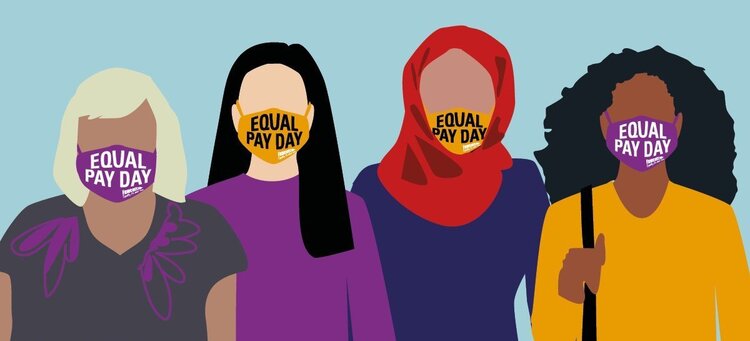Op-Ed: A Stimulus Check is Good But No Substitute for Fair Pay for Women

Checks for $1,400 may be headed to many people’s bank accounts from the latest American Rescue Plan, but a stimulus payment can’t fix fair pay. For today’s Equal Pay Day — a day that signifies when women’s earnings catch up from men from the year before — the legislature can advance bills that will close the wage gap and prioritize the women in our communities who are disproportionately affected in the COVID-19 crisis.
Connecticut’s working women earn less than men no matter where they work or where they live. Women in Connecticut earn on average 84 cents for every dollar paid to men—and this pay gap is more severe for Asian, Black, Native and Latina women. With the widest gap compared to white non-Hispanic men, Latina women in Connecticut working full time, year-round earn approximately 48 cents to the dollar.
Not only is this an issue of equity and fairness, but nearly 50% of female headed households in Connecticut under age 65 live with earnings above poverty level but below what is needed to meet a family’s basic needs such as health care, housing, child care, and transportation. Plus, women’s high unemployment rate due to COVID-19 is expected to exacerbate gender and racial wage gaps.
The wage gap still exists in 2021 due to discrimination, pay secrecy practices, women’s overrepresentation in low-wage jobs, and economic barriers with caregiving responsibilities. Connecticut’s passage and implementation of paid family medical leave is a significant step for women’s ability to stay in the workforce. But, if we don’t do our part for working women in this moment of COVID-19 crisis, we will revert decades for women’s fair pay.
In the legislature, we can close the wage gap for Connecticut’s women with passage of legislation that increases pay transparency, invests in affordable and accessible childcare and expands paid sick days for workers. Plus, our workforce development opportunities can focus on advancing unemployed and underemployed women in our communities into proven training programs for a job in a high-wage and high-growth industry in our state.
House Bill 6380 can do something that might seem simple but is essential for women. The bill requires employers to provide job applicants and employees salary ranges for vacant positions. As someone who has trained thousands of women to negotiate salaries, transparency of a salary range is critical information for fair pay. Studies show that women are more successful in salary negotiations when provided the information of a salary range and types of compensation and benefits available to them.
The bill additionally mirrors Massachusetts’ law to provide “equal pay for comparable work.” The “comparable work” standard updates our law to match today’s workplace to ensure there is equal pay for jobs that are similar in skill, effort, and responsibility, and is performed under similar working conditions.
The $1,400 is a needed lifeline for so many — especially women who are unemployed or in low-wage jobs — to meet immediate basic needs. Other components of the federal stimulus package, including the expanded child tax credit, will provide other forms of support for families. But the federal response alone is not enough for women, especially women of color, who face the greatest economic impact during this crisis. I encourage my colleagues to join me to take legislative action by enacting House Bill 6380 to advance equal pay for women.
Read it in the CT Mirror, here.





